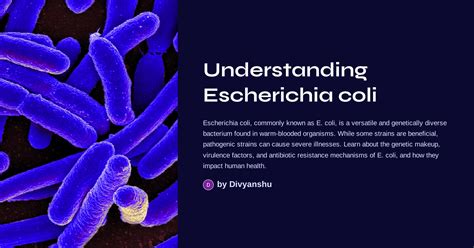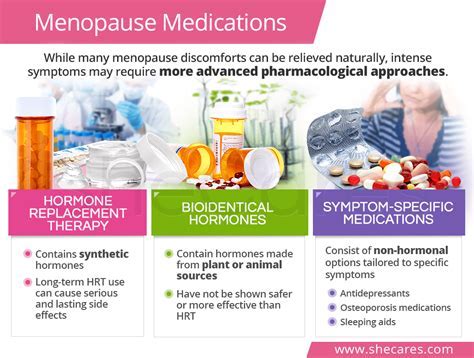Intro
The presence of E. coli bacteria in the human body can lead to a range of health issues, from mild to severe. E. coli, or Escherichia coli, is a type of bacteria that is commonly found in the environment, foods, and the intestines of humans and animals. While some strains of E. coli are harmless, others can cause serious infections, including urinary tract infections, pneumonia, and gastrointestinal infections. Understanding the various E. coli treatment options is crucial for effectively managing and preventing the spread of these infections.
E. coli infections can affect anyone, but certain individuals are more susceptible to severe illness, including young children, older adults, and people with weakened immune systems. The symptoms of an E. coli infection can vary depending on the location and severity of the infection. Common symptoms include diarrhea, abdominal cramps, and vomiting. In severe cases, E. coli infections can lead to life-threatening complications, such as hemolytic uremic syndrome (HUS), a type of kidney failure. It is essential to seek medical attention if symptoms persist or worsen over time.
The importance of prompt and effective treatment cannot be overstated, as it can significantly improve outcomes and reduce the risk of complications. E. coli treatment options vary depending on the severity and location of the infection, as well as the individual's overall health. In this article, we will delve into the various treatment options available for E. coli infections, including antibiotics, supportive care, and preventative measures. By understanding the different approaches to treatment, individuals can better navigate the healthcare system and make informed decisions about their care.
Understanding E. Coli Infections

E. coli infections can be classified into several categories, including urinary tract infections (UTIs), gastrointestinal infections, and pneumonia. UTIs occur when E. coli bacteria enter the urinary tract, causing symptoms such as burning during urination, frequent urination, and abdominal pain. Gastrointestinal infections, on the other hand, occur when E. coli bacteria contaminate food or water, leading to symptoms such as diarrhea, vomiting, and abdominal cramps. Pneumonia caused by E. coli is a more severe infection that can lead to respiratory failure and death if left untreated.
Causes and Risk Factors
The causes and risk factors for E. coli infections are diverse and complex. Some of the most common causes include contaminated food and water, poor hygiene, and close contact with an infected individual. Certain individuals are more susceptible to E. coli infections, including young children, older adults, and people with weakened immune systems. Additionally, individuals with underlying medical conditions, such as diabetes or kidney disease, are also at increased risk.Diagnosis and Testing

Diagnosing an E. coli infection typically involves a combination of physical examination, medical history, and laboratory tests. A healthcare provider may perform a urinalysis or stool test to detect the presence of E. coli bacteria. In some cases, imaging tests such as a CT scan or ultrasound may be ordered to rule out other conditions or complications. It is essential to seek medical attention if symptoms persist or worsen over time, as prompt diagnosis and treatment can significantly improve outcomes.
Lab Tests and Results
Lab tests and results play a critical role in diagnosing and managing E. coli infections. A urinalysis or stool test can detect the presence of E. coli bacteria, while blood tests can help identify any underlying conditions or complications. Imaging tests such as a CT scan or ultrasound can provide valuable information about the severity and location of the infection. Interpreting lab results and test findings requires a healthcare professional's expertise, and individuals should not attempt to self-diagnose or self-treat an E. coli infection.Treatment Options

The treatment options for E. coli infections vary depending on the severity and location of the infection, as well as the individual's overall health. In some cases, treatment may involve antibiotics, while in other cases, supportive care such as rest, hydration, and nutrition may be sufficient. In severe cases, hospitalization may be necessary to manage complications and prevent long-term damage.
Antibiotics and Medications
Antibiotics and medications play a critical role in treating E. coli infections. The type and duration of antibiotic treatment depend on the severity and location of the infection, as well as the individual's overall health. In some cases, a healthcare provider may prescribe a broad-spectrum antibiotic to cover a range of possible bacteria, while in other cases, a more targeted approach may be necessary. It is essential to complete the full course of antibiotic treatment, even if symptoms improve before finishing the medication.Supportive Care and Prevention

Supportive care and prevention are essential components of managing E. coli infections. This may include rest, hydration, and nutrition to help the body recover from the infection. In some cases, a healthcare provider may recommend probiotics or other supplements to support gut health and prevent future infections. Preventative measures such as frequent handwashing, proper food handling, and avoiding close contact with infected individuals can also help reduce the risk of E. coli infections.
Home Remedies and Self-Care
Home remedies and self-care can play a valuable role in managing E. coli infections. This may include staying hydrated by drinking plenty of fluids, getting plenty of rest, and avoiding strenuous activities. In some cases, over-the-counter medications such as pain relievers or anti-diarrheal medications may be necessary to manage symptoms. However, it is essential to consult with a healthcare provider before attempting any home remedies or self-care, as some treatments may interact with other medications or worsen the infection.Complications and Long-Term Effects

Complications and long-term effects of E. coli infections can be severe and debilitating. In some cases, E. coli infections can lead to life-threatening complications such as hemolytic uremic syndrome (HUS), a type of kidney failure. Other potential complications include respiratory failure, sepsis, and meningitis. Long-term effects may include kidney damage, gastrointestinal problems, and increased risk of future infections.
Managing Complications and Preventing Long-Term Effects
Managing complications and preventing long-term effects requires prompt and effective treatment, as well as ongoing monitoring and care. A healthcare provider may recommend regular follow-up appointments to monitor kidney function, gastrointestinal health, and overall well-being. In some cases, additional treatments or interventions may be necessary to manage complications and prevent long-term effects.Current Research and Developments

Current research and developments in the field of E. coli infections are focused on improving diagnosis, treatment, and prevention. This includes the development of new antibiotics and therapies, as well as advances in diagnostic testing and imaging. Researchers are also exploring the role of probiotics and other supplements in preventing and managing E. coli infections.
Emerging Trends and Technologies
Emerging trends and technologies in the field of E. coli infections include the use of artificial intelligence and machine learning to improve diagnosis and treatment. Additionally, researchers are exploring the potential of gene editing and other innovative approaches to prevent and manage E. coli infections. As research continues to evolve, it is likely that new and effective treatments will become available, improving outcomes and reducing the risk of complications.What are the most common causes of E. coli infections?
+The most common causes of E. coli infections include contaminated food and water, poor hygiene, and close contact with an infected individual.
How can I prevent E. coli infections?
+Preventing E. coli infections involves frequent handwashing, proper food handling, and avoiding close contact with infected individuals. Additionally, staying hydrated, getting plenty of rest, and maintaining a healthy diet can help support immune function and reduce the risk of infection.
What are the symptoms of an E. coli infection?
+The symptoms of an E. coli infection can vary depending on the location and severity of the infection, but common symptoms include diarrhea, abdominal cramps, and vomiting.
How are E. coli infections diagnosed?
+E. coli infections are typically diagnosed through a combination of physical examination, medical history, and laboratory tests, including urinalysis or stool tests.
What are the treatment options for E. coli infections?
+Treatment options for E. coli infections vary depending on the severity and location of the infection, but may include antibiotics, supportive care, and preventative measures.
In summary, E. coli infections can have serious consequences if left untreated or mismanaged. Understanding the various treatment options, preventative measures, and current research developments is essential for effectively managing and preventing the spread of these infections. By staying informed and taking proactive steps to protect oneself and others, individuals can reduce the risk of E. coli infections and promote overall health and well-being. We invite you to share your thoughts and experiences with E. coli infections, and to explore the various resources and support available for individuals affected by these infections. Together, we can work towards a future where E. coli infections are rare and easily treatable.
